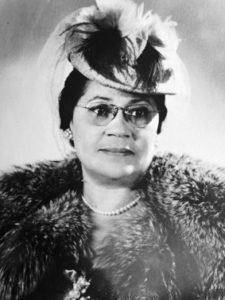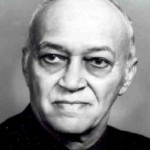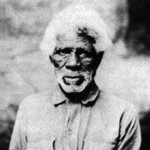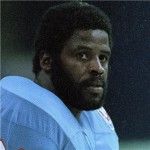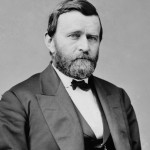New TIPHC Exhibit!
“Biscuits and Business”
The Legacy of Lucille Smith and Southern Black Chefs
In celebration of Women’s History Month, the Texas Institute for the Preservation of History and Culture presents, “Biscuits and Business: The Legacy of Lucille Smith and Southern Black Chefs.” The School of Architecture artist in residence Marlon Hall, and Assistant Professor of Practice, Ann Johnson have collaborated with TIPHC Director Michael Hurd to co-curate an exhibition dedicated to the legacy of chef and entrepreneur Lucille Bishop Smith, who studied and later taught at Prairie View A&M and is noted as the first black businesswoman in Texas.
In 1937, Lucille Smith was invited to design a Domestic Service Training Program for professors and instructors at Prairie View. She went on to develop the first college-level Commercial Foods and Technology Department that was intelligently paired with an apprenticeship program. Smith was the first black woman to join the Fort Worth Chamber of Commerce and for several years her chili biscuits were served on American Airline flights and were also served at the White House. First Lady Eleanor Roosevelt, President Lyndon Johnson and heavyweight boxing champion Joe Louis were among her friends, fans, and customers.
The exhibition at Prairie View will feature original artwork by Ann Johnson, and two documentary shorts by Marlon Hall. Assistant Professor of Art, Renee Smith produced the graphic designs. Johnson’s sculpture students have created unique pieces for the exhibit, and School of Architecture Shop Supervisor Shannon Bryant has assembled an extraordinary team of students that have established the architectural foundation of the exhibition.
The opening reception for “Biscuits and Business” is Thursday, March 28, 2019, from 2-4pm in the TIPHC art gallery, in the Nathelyne Kennedy Architecture Building.
The original Lucille Smith exhibition titled, “Reliquary,” was featured on CBS This Morning, and is on exhibit in the private dining room of Lucille’s restaurant at 5512 LaBranch in Houston. Smith’s great-grandson, chef Chris Williams, opened the restaurant in Lucille’s honor.
For more information, contact Michael Hurd at the TIPHC, 936-261-9836, or email mdhurd@pvamu.edu.
Before Kapernick there was Clem Daniels of Prairie View A&M
PVAMU football legend passes
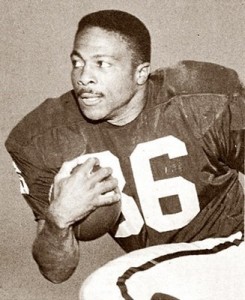 (HBCU Sports) Did you know that a Prairie View A&M graduate was successful in leading the 1965 American Football League All-Star Game boycott? Did you also know that same graduate defended a legendary film star known as “The Hammer?” Today, we pay homage to Prairie View Hall of Famer and former AFL standout Clem Daniels. Clem passed away on Saturday (Mar. 23), at the age of 81.
(HBCU Sports) Did you know that a Prairie View A&M graduate was successful in leading the 1965 American Football League All-Star Game boycott? Did you also know that same graduate defended a legendary film star known as “The Hammer?” Today, we pay homage to Prairie View Hall of Famer and former AFL standout Clem Daniels. Clem passed away on Saturday (Mar. 23), at the age of 81.
To Panther fans, Daniels is best known for helping the university capture the 1958 Black College National Championship under head coach William “Billy” Nicks. During that season, Daniels led the Panthers at running back to a 10-0-1 mark which included big wins over Florida A&M (28-8) and Grambling State (44-6). During that era, Daniels played against some of the best to ever play the game when it came to opposing programs. However, just making it on the field at Prairie View was a challenge for Daniels.
“We had 180 guys out for the team my freshman year at Prairie View — an A section and a B Section with 80 guys in one group and 80 in another,” said Daniels in his last interview on KPVU 91.3 FM back in 2016. “We had a lot of talent at Prairie View. Coach Nicks made sure to recruit the cream of the crop, but he made sure they graduated also.” (more)
Meet Elizabeth Freeman, the First Enslaved Woman to Sue for Her Freedom—and Win
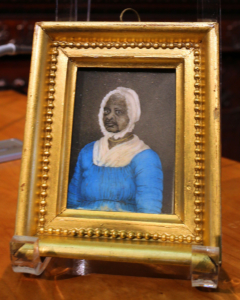 (History) In 1780, the proclamation “all men are born free and equal,” rang out from the central square in the small town of Sheffield in western Massachusetts. The line was from the state’s newly ratified constitution, read aloud for a proud public to hear. America’s war for independence was raging and, like the rest of the burgeoning country, the town was gripped by revolutionary fever.
(History) In 1780, the proclamation “all men are born free and equal,” rang out from the central square in the small town of Sheffield in western Massachusetts. The line was from the state’s newly ratified constitution, read aloud for a proud public to hear. America’s war for independence was raging and, like the rest of the burgeoning country, the town was gripped by revolutionary fever.
But one woman who heard it wasn’t inspired—she was enraged. Elizabeth Freeman, then known only as “Bett,” was an enslaved woman who understood the irony in the declaration right away. As she watched the men around her declare freedom from oppressive rule, it only stood to reason that she should do the same.
Freeman marched, by some accounts immediately, to the house of Theodore Sedgwick, a prominent local lawyer, and demanded a dramatic accounting for the hypocrisy: she wanted to sue the state of Massachusetts for her freedom.
“I heard that paper read yesterday, that says all men are born equal and that every man has a right to freedom,” she said, “I am not a dumb critter; won’t the law give me my freedom?” (more)
TIPHC Bookshelf
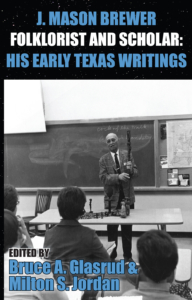 Published scholarship on black history in Texas is growing and we’d like to share with you some suggested readings, both current and past, from some of the preeminent history scholars in Texas and beyond. We invite you to take a look at our bookshelf page – including a featured selection – and check back as the list grows. A different selection will be featured each week. We welcome suggestions and reviews. This week, we offer, “J. Mason Brewer, Folklorist and Scholar: His Early Texas Writings,” edited by Milton S. Jordan and Bruce A. Glasrud.
Published scholarship on black history in Texas is growing and we’d like to share with you some suggested readings, both current and past, from some of the preeminent history scholars in Texas and beyond. We invite you to take a look at our bookshelf page – including a featured selection – and check back as the list grows. A different selection will be featured each week. We welcome suggestions and reviews. This week, we offer, “J. Mason Brewer, Folklorist and Scholar: His Early Texas Writings,” edited by Milton S. Jordan and Bruce A. Glasrud.
“J. Mason Brewer, Folklorist and Scholar,” is a collection of the writings of famed African American teacher and scholar, John Mason Brewer. In this collection, Glasrud and Jordan pulled together a wide range of Brewer’s publications that were written in and about Texas. These works were published over a lengthy period of time, beginning in the early 1920s and continuing to mid-century.
In this stimulating collection, it can be noted that he was a renaissance scholar and teacher proficient as a folklorist, poet, and historian. Glasrud and Jordan included in the book a foreword from Texas Folklore Society director Kenneth Untiedt, an introduction, and a bibliography.
The publications of Brewer found in this book include “Glimpses of Life: Poems; The Negro in Texas History”; “The Life of John Wesley Anderson in Verse”; and a folklore collection, “John Tales,” among other studies.
This Week in Texas Black History
Mar. 24
On this date in 1896, folklorist J. Mason Brewer was born in Goliad. Brewer, considered the premier African-American folklorist of the twentieth century became the first author and speaker to use black American dialect extensively in front of and to all audiences, particularly when dealing with folklore. Brewer attended black public schools in Austin and in 1917 received a B.A. from Wiley College in Marshall. In 1926, he was a professor at Samuel Huston (now Huston-Tillotson) College in Austin when he met University of Texas professor J. Frank Dobie who influenced Brewer to turn from publishing his own poetry to collecting and publishing black folklore. He was the first black member of both the Texas Folklore Society and the Texas Institute of Letters. Brewer’s most noted works include “Aunt Dicy Tales,” and an anthology, “American Negro Folklore,” for which he won the Chicago Book Fair Award in 1968.
Mar. 28
This day marks the death of Congressional Medal of Honor recipient Pompey Factor in 1928 near Brackettville. Factor was a black Seminole and a former slave who served as a U.S. Army scout working with the 24th Infantry, a Buffalo Soldier regiment. He received the MOH for his actions on April 25, 1875 at Eagle’s Nest Crossing near present-day Langtry, Texas when he helped rescue unit commander Lieutenant John L. Bullis, who was under heavy fire and nearly surrounded in a skirmish with Comanche Indians.
Mar. 29
Running back Earl Campbell, the first Heisman Trophy winner for the University of Texas football program, was born this day in Tyler in 1955. He attended John Tyler High School then starred for the Longhorns, becoming the first player to earn All-Southwest Conference honors four years (1974-1977). As a senior in 1977, he led the nation in rushing with 1,744 yards and was awarded the Heisman. Campbell was the first overall pick of the 1978 National Football League draft by the Houston Oilers with who he was a 1978 Rookie of the Year, three-time league Most Valuable Player, and league-leading rusher three times. In 1990, he was inducted to the College Football Hall of Fame and the following year to the Pro Football Hall of Fame. In 1981, the Texas Legislature enshrined Campbell as an Official State Hero Of Texas, an honor that had been bestowed on only three others – Davy Crockett, Stephen F. Austin, and Sam Houston.
Mar. 29
On this date in 1870, President Ulysses S. Grant signed an act to readmit Texas to Congressional representation after Texas voters approved a revised state constitution, as required under the Radical Reconstruction, and elected a state government in November 1869. The new Legislature convened and ratified the 13th, 14th and 15th Amendments to the U.S. Constitution, the final requirements for readmission to the Union. The 13th Amendment outlawed slavery, the 14th granted citizenship to “all persons born or naturalized in the United States,” which included former slaves, and the 15th guaranteed black men, including freed slaves, the right to vote.
Blog: Ron Goodwin, Ph.D., author, PVAMU history professor
Ron Goodwin is an assistant professor of history at Prairie View A&M University. Even though he was a military “brat,” he still considers San Antonio home. Like his father and brother, Ron joined the U.S. Air Force and while enlisted received his undergraduate degree from Texas Lutheran University in Seguin, Texas. After his honorable discharge, he completed graduate degrees from Texas Southern University. Goodwin’s book, Blacks in Houston, is a pictorial history of Houston’s black community. His most recent book, Remembering the Days of Sorrow, examines the institution of slavery in Texas from the perspective of the New Deal’s Slave Narratives.
Recent Posts
The Everlasting Light
Ye are the light of the world. A city that is set on an hill cannot be hid. Neither do men light a candle, and put it under a bushel, but on a candlestick; and it givith light unto all that are in the house. Let your light so shine before men, that they may see your good works, and glorify your Father which is in heaven. — Matthew 5: 14-16
This is the month set aside to honor…(more)
The Return of the Silent Majority
Fifty years ago, in January 1969, Richard Nixon was sworn in as the thirty-seventh president of the United States. His legacy as President was marred by the Watergate investigations and his eventual resignation from office which overshadowed the way in which he won the office. His central campaign rhetoric was designed to garner support from white Southerners (otherwise known in history as the “Silent Majority”) whose racial beliefs leaned heavily towards the support of white…(more)
Submissions wanted
Historians, scholars, students, lend us your…writings. Help us produce the most comprehensive documentation ever undertaken for the African American experience in Texas. We encourage you to contribute items about people, places, events, issues, politics/legislation, sports, entertainment, religion, etc., as general entries or essays. Our documentation is wide-ranging and diverse, and you may research and write about the subject of your interest or, to start, please consult our list of suggested biographical entries and see submission guidelines. However, all topics must be approved by TIPHC editors before beginning your research/writing.
We welcome your questions or comments. Please contact Michael Hurd, Director of TIPHC, at mdhurd@pvamu.edu.

